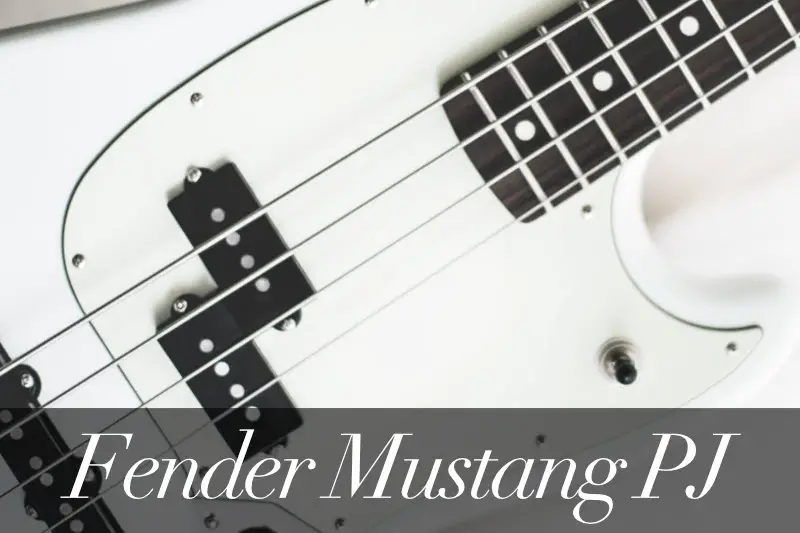Introduced in 1966, the Fender Mustang PJ Bass is a classic short-scale instrument that is, despite its small size, a force to be reconned with. The original concept for the Mustang PJ bass was to offer a smaller-scale instrument for students and young bassists of smaller stature. However, due to its high quality and delirious amounts of fun, it gained popularity among many pro bassists and everyday players as well.
The Fender Mustang Bass was the last bass that Leo
Mustang PJ bass stats and info
Featuring a 30″ scale (compared to the 34″ scale of the Precision and Jazz Bass) and a staggered split-pickup design, similar to that on a Precision Bass, the Mustang proved to be a fairly popular model for many years. String-through-body construction was a standard feature, and the simple electronics offered one volume and one tone control.
Some of the most sought-after versions are the 1969-72 Mustang models that were issued with “competition stripes” on the body. Most of these basses also featured matching headstocks. The Mustang was made by Fender until 1981 when it was finally discontinued. Fender Japan offers a reissue series of the Mustang that is still available today.
A quick review of the Fender Mustang PJ bass
Though easier to play for some, short-scale basses tend to have a more rubbery tone and feel than full-scale models. They’re also more susceptible to intonation problems, meaning that they’re harder to keep in tune. I have played a few Fender Mustang PJ Basses. And, I actually kind of like the tone and playability of these instruments.
Being a Fender fanatic, I can honestly say that the Mustang has that classic Fender feel that will be familiar to all Precision and Jazz Bass players.
To me, the Mustang sounds very similar to a Precision Bass. However, I think it has less definition and not as much of a mid-range presence. One thing I have to admit is that they certainly are fun to play. Also, the smaller scale and lighter weight can really help for long sets or for smaller bassists with shorter arms.
The one thing that keeps me from buying a Mustang PJ bass is that short-scale basses tend to lack a certain punch and clarity that full-scale basses have. I notice this especially when recording. Many people, however, would argue that point, and some even prefer that short-scale rubbery sound.
Several well-known bassists have used the Fender Mustang bass, including Tina Weymouth (The Talking Heads), Bill Wyman (Rolling Stones), and Trevor Bolder (David Bowie).
If you get a chance, check out the Fender Mustang PJ Bass. If you like light, easy-to-play basses that sound good, the Fender Mustang PJ bass might just be your ideal instrument.

